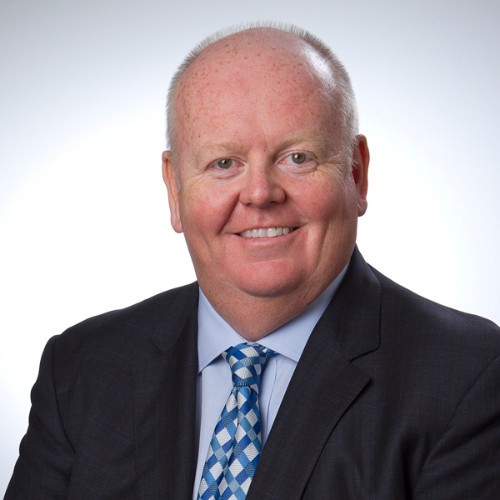Can Canada’s other provinces replicate Ontario’s iGaming success?

In April 2022, Canada’s province of Ontario launched the country’s first competitive online gaming market. Three years later, Alberta’s legislature approved the iGaming Alberta Act on 7 May, creating a framework for a similarly regulated market in that western province.
But the uptake to competitive iGaming across the whole of Canada has been slow. The majority of the eight other provinces maintain state-funded online gaming or lottery offerings, similar to the Scandinavian monopoly model – although in the Nordics, Norway is the only remaining market to have not liberalised online gambling.
The model has long been criticised by industry trade bodies in the Nordics and, in the last year, politicians in Norway have also called for an end to the gambling monopoly. A prominent complaint is the unfair competitive advantage afforded to monopoly operators, as well as a lack of competitive options for consumers.
But perhaps the more pressing issue is the proliferation of unlicensed gambling operators and the lack of consumer protection within a monopoly market.

Paul Burns, president and CEO of the Canadian Gaming Association, believes the black market’s rise has been so prominent in Canada, the monopoly model no longer exists. “Because of the large unregulated market presence in Canada, no one’s had a monopoly for 25 years and that’s the reality,” he laments. Burns has been vocal about his wishes for other provincial governments to follow in Ontario’s footsteps.
“Canadians have gone to online sites for a decade or more and had access to all kinds of products and choice,” Burns says. “The monopoly model no longer exists. What we’re saying as a trade body is the provincial governments have the tools [to regulate].”
Canada iGaming is already mature
The Canada Gaming Association has urged remaining unregulated provinces to act and follow in the footsteps of Ontario and Alberta. “There’s this whole discussion going on around sweepstakes and predictive markets in North America and it’s like, the next thing’s already here and there’s more coming,” Burns warns. “As a regulator, there’s no time to pause anymore.”
Of the remaining provinces which do not provide regulated iGaming, Burns says the majority operate a legacy lottery regulator model with a lottery monopoly present. British Columbia, like Alberta, has an iGaming monopoly, offering table games, poker, bingo, slots and lottery tickets.
Burns says some of these provinces are still operating on an agreement made with the federal government in the 1980s giving the local governments jurisdiction over their gambling laws. But the developments in Ontario, and more recently Alberta, have piqued the interest of other provinces.
Burns says a number are analysing the framework adopted by Ontario, and British Columbia and Quebec are actively in conversations with the Canada Gaming Association on the possibility of regulating iGaming in their markets.
Looking back at Canada’s historic grey market iGaming adoption, Burns says the country was blessed with ideal foundational elements for the sector. This included high penetration of high-speed internet in the 2000s, a high adoption rate for mobile devices and the use of electronic banking systems throughout that post-millennium period.
“Canadians gravitated to offshore sites and were happy to play because they were available to them and offered them products they wanted and most people didn’t know the difference,” Burns says of the thriving grey market. For a long time, European incumbents like Kindred and Bet365 operated successful products in the country.
Ontario’s successes
But after the 2018 repeal of PASPA in the US, Canadians took heed of the progressive adoption of online betting and gaming across the United States. For Ontario, the market was already mature when regulation was introduced.
“By the time Ontario opened, there was this built-in marketplace of customers with customer preferences, that was already evolving with brands,” Burns explains. “It’s always been a healthy gaming market, but by bringing the online space out of the unregulated, into a regulated regime, we were able to see what that market looked like.”
Ontario’s healthy 32% revenue gains in 2024 are a nod to the regulated market’s success. In its second full year of operation, the sector reaped $2.3 billion in revenue, not including its state-supported iGaming Ontario platform. The province is the most populous in Canada, with almost 16 million residents.
When looking at the US, and the huge iGaming market in New Jersey, Ontario reaped over two thirds of New Jersey’s $2.39 billion in iGaming revenue in 2024. Notably, New Jersey switched iGaming on in 2013, nine years prior to Ontario.
“There is a strong marketplace in Ontario and it’s continuing to evolve,” Burns says. He nods to the “strong responsible gaming and advertising rules” in place and insists that, while a few brands dominate the market, there is room for others to take market share.
Canada iGaming market leaders
BetMGM is one operator that has previously claimed to hold a 22% share of the market. Speaking during its Q1 earnings call, BetMGM CEO Adam Greenblatt told analysts the company’s share had increased and it remained the iGaming leader in the region.
Greenblatt was particularly optimistic about the omnichannel opportunity in soon-to-launch Alberta, as he expects BetMGM to replicate its success in Ontario.
“[We’re] particularly excited for Alberta, which looks to still be on track for a Q1 [2026] launch for both sports betting and iGaming. That should be a province where BetMGM really does flex its muscles, given the strength of our business in Ontario,” he said.
Learnings from the East
Unsurprisingly, Alberta has sought to replicate much of the framework from Ontario, particularly its ability to attract leading players from the grey market. “One of the things Ontario did (well) was building a market that invited the grey market operators and made it advantageous for them to join,” says Burns.
“Alberta is clearly leading with strong measures of consumer protection. It’s this balance of being prepared to invest heavily in protecting your market and making it advantageous for people to join the regulated market. Ontario set a good bar, but we’re asking them to improve on that regulatory regime.”
Burns says his trade body has fought for a number of policies to be updated, based on what’s been learned during Ontario’s first two years of operation. These include streamlining technical reporting measures, which currently must be submitted to two different government entities. After all, Burns notes, compliance costs matter in competitive markets.
“What it means for the PlayAlberta platform is that, just like in Finland, they’re just going to compete naturally with the other private companies, and that’s a choice they must make. So, Ontario was a great example.”
Healthy competition

But where Alberta differs from Finland is its state-run PlayAlberta site continues to grow. In the 2023-24 fiscal year, the platform recorded $170 million in net sales, a 22% uptick on the previous year. But Burns believes the product represents up to 20% of the current market, meaning the remaining 80% is dominated by the black market.
Ultimately, the platform has been unable to compete with the burgeoning grey market. The monopoly story is a familiar one. A state-run operator chugs along for many years with an average product, but when the promise of an open and regulated market emerges, it buckles down and overhauls its product to fight for a fair share of the open market.
In May, Jarkko Nordlund, EVP for iGaming and sports betting at Finland’s monopoly Veikkaus, told iGB the operator was modernising its entire product suite and back-end services, including transitioning to new betting, PAM and CRM platforms. The market will open to private operators in January 2027.
“Everyone is waiting for Veikkaus to fail. And it’s my personal mission to prove everyone wrong,” Nordlund said.
“We have not really activated [our technology and product capabilities], but the competition is fierce and when the market opens we must be very competitive. Our aim is to challenge the mentality of our current position.”
More work for PlayAlberta
PlayAlberta has already leaned in and enhanced the volume of products available on its site, says Burns. And similarly to Veikkaus, the operator is expecting to leverage its strong brand reputation in the province to drive acquisition.
“It’s a choice provincial governments must make: Do they let their gambling organisation invest? Because it will require investment.”
In April, Ontario estimated it was operating a channelisation rate of 84%, although the province’s regulator and the Alcohol and Gaming Commission of Ontario found that 20.2% of those playing on regulated sites are also still engaging with the unregulated market.
There is clearly still more work to do.
Having achieved an 84% channelisation rate in two and a half years is a positive trajectory, but leakage of players to the illegal market could be in part due to the restrictions on bonusing and promotional marketing by licensed operators in Ontario. Players actively looking for a good welcome bonus deal might be enticed over to the black market.
Alberta has yet to finalise many of the specifics around advertising and player regulations. Following the third and final reading of the iGaming bill in Parliament on 7 May, the law was approved.
Minister of Service and Red Tape Reduction Dale Nally said during the session that consumer protection measures would be determined once the bill was passed, to ensure flexibility and so the regulator could adapt to the changing nature of consumer behaviors. He indicated the regulated market would launch in Q1 2026.
The impact of US tariffs on Canada iGaming
While advancements in gaming are largely positive in Canada, the sector is grappling with the mounting threat of incoming US tariffs, as announced by President Donald Trump in February.
In a note published on 1 February, the White House said to curb the flow of drugs and immigrants into the US from Canada, it would impose a 25% additional tariff on imports from Canada. In retaliation, the Alberta Gaming Liquor and Cannabis Commission suspended the purchasing of all US gaming terminals on 6 March.
The regulator called for all slot machines, video lottery terminals and other machines to be bought from companies with support services in Alberta, or from countries with whom Canada has a free trade agreement. The suspension was lifted earlier this month as some of the initial tariff tensions eased.
“It’s been an emotional debate in Canada because of the way President Trump has chosen to portray the relationship between Canada and the United States in the absence of facts,” Burns laments. He says up to 70% of the gaming machines sold in Canada are being acquired via agencies belonging to the provincial governments. Land-based operators have a deal in place with the local government for the use of gaming machines.
“This impact is real for governments in the province, but also provinces are changing their procurement policies and [fighting back].” This could force a change in the model used by operators. Many will undoubtedly seek to procure local supplies going forward.
Looking beyond the US
And Canada is unlikely to bow out of a trade war with the US, as politicians have indicated the country is happy to move away from its reliance on its neighbour to the south, particularly following Trump’s suggestion that the country would be better off as a US state.
The impact is being felt more broadly by gaming providers with business in the US. The topic of tariffs was flagged in a number of supplier Q1 results, and analysts sought to understand how the sector is mitigating the fallout. Light & Wonder said it was looking to transport parts of its supply chain through Mexico to utilise the trade deal in place.
Overall, the future for regulating gambling is positive in Canada. And although provinces have been slow to adopt a competitive framework for iGaming, developments in Ontario and Alberta have prompted early-stage discussions among provincial regulators.
